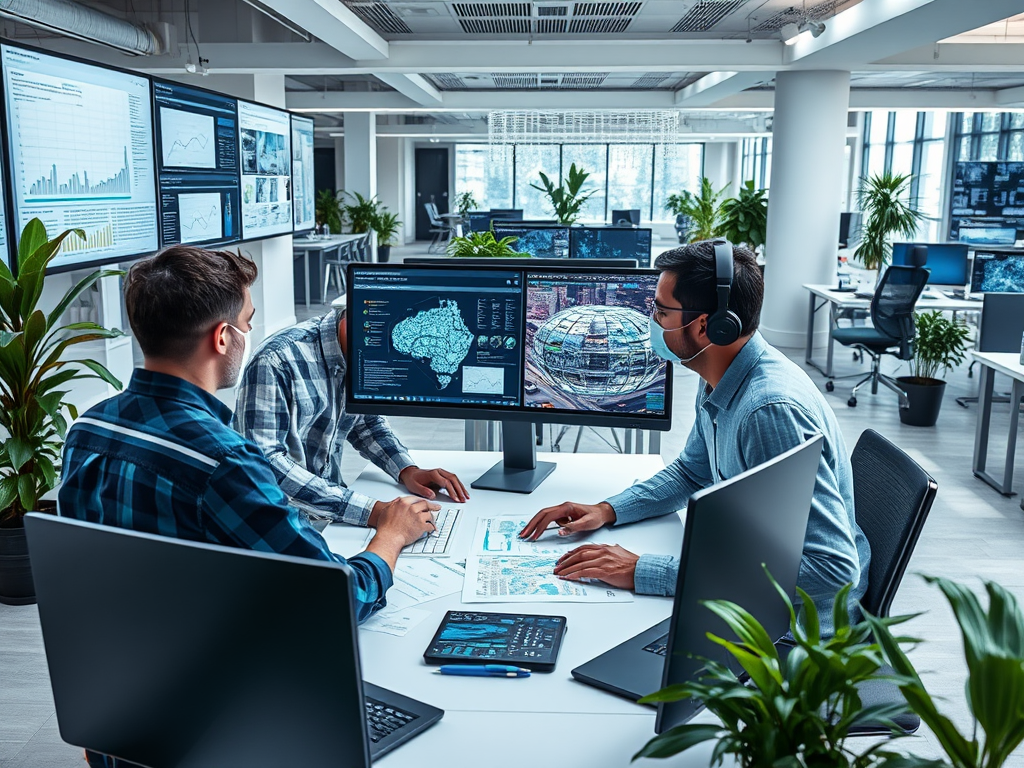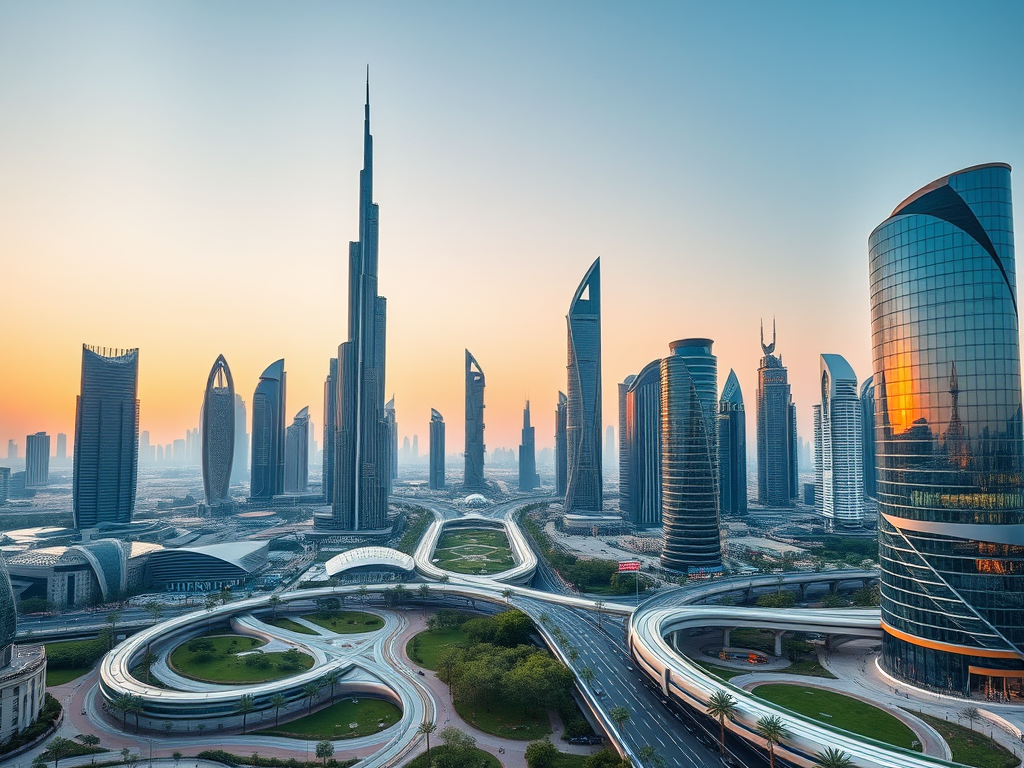Dubai is harnessing the power of artificial intelligence (AI) to revolutionize urban planning and development. These AI-driven tools are set to enhance efficiency, sustainability, and livability in one of the world’s most rapidly growing cities. By integrating technology into the planning process, Dubai aims to create a smart city that not only meets the needs of its residents but also anticipates future challenges. In this article, we will explore the innovations brought about by AI in urban planning, their benefits, and how they align with Dubai’s vision for a smart future.
Transforming Urban Landscapes with AI

The implementation of AI in urban planning is transforming the traditional methodologies used by city planners. This technology offers data-driven insights that aid in the decision-making process and streamline development. AI can process vast amounts of data from various sources—traffic patterns, population growth, environmental impacts—allowing planners to simulate various scenarios and forecast outcomes effectively. Key aspects of AI-enhanced urban planning include:
- Predictive Analytics: Utilizing historical data to forecast future urban needs.
- Resource Management: Optimizing the use of land, water, and energy resources.
- Smart Mobility Solutions: Integrating AI with public transport systems to reduce congestion.
- Environmental Monitoring: Tracking air quality and urban heat islands to promote sustainability.
- Community Engagement: Using AI-powered platforms to engage citizens in the planning process.
Enhancing Sustainability through Intelligent Design

In recent years, sustainability has become a focal point of urban development, and AI tools play a crucial role in this effort. Dubai’s AI-driven approaches allow for detailed assessments of environmental impacts, ensuring that new developments align with the city’s commitment to sustainable growth. Some notable aspects include:
- Smart Grid Technology: Enhancing energy efficiency through AI-optimized energy consumption.
- Green Building Design: Analyzing architectural layouts for optimal energy use and minimal waste.
- Water Conservation: Implementing AI algorithms to manage and predict water supply and demand efficiency.
Dubai’s investment in AI-driven urban planning is not only about improving infrastructure but also about fueling economic growth. By creating a more attractive environment for businesses and investors, Dubai can stay competitive in the global market. The benefits of this approach include:
- Attracting Foreign Investment: Demonstrating a commitment to advanced technologies draws businesses keen on innovation.
- Job Creation: Facilitating new industries around AI, tech, and smart solutions fosters employment opportunities.
- Boosting Tourism: Developing user-friendly urban spaces and attractions that utilize AI enhances the visitor experience.
Fostering Innovation through Public-Private Partnerships
The success of AI-driven urban planning relies heavily on collaboration between the public and private sectors. Such partnerships enable the sharing of resources, expertise, and data, creating a more holistic approach to city planning. This collaborative framework supports the development of innovative solutions in various areas, including:
- Infrastructure Development: Encouraging unique designs and technologies from private firms.
- Technology Integration: Implementing cutting-edge technologies developed by startups and tech companies.
- Research and Development: Supporting academic and private research initiatives related to urban sustainability.
Conclusion
Dubai’s adoption of AI-driven urban planning tools exemplifies how technology can transform cities into more efficient, sustainable, and appealing environments. By utilizing these innovative solutions, Dubai not only enhances the quality of life for its residents but also paves the way for economic prosperity and environmental stewardship. As the city continues its journey toward becoming a smart city, the potential of AI in urban planning will undoubtedly play a critical role in shaping its future.
Frequently Asked Questions
1. What are AI-driven urban planning tools?
AI-driven urban planning tools incorporate artificial intelligence technologies to analyze data, forecast outcomes, and optimize resource use in city planning.
2. How does AI improve the sustainability of urban developments?
AI improves sustainability by providing insights into energy consumption, waste management, and environmental impacts, enabling more informed and eco-friendly decisions.
3. What role do public-private partnerships play in AI-driven urban planning?
Public-private partnerships facilitate collaboration between government entities and private companies, promoting innovation, resource sharing, and effective implementation of AI technologies.
4. How can residents engage with AI-driven urban planning initiatives?
Residents can engage through AI-powered platforms that solicit citizen feedback, preferences, and insights which feed into the planning process.
5. What is the long-term vision for Dubai as a smart city?
Dubai’s long-term vision as a smart city includes improved infrastructure, sustainable living, enhanced economic opportunities, and the use of technology to elevate the quality of urban life.
